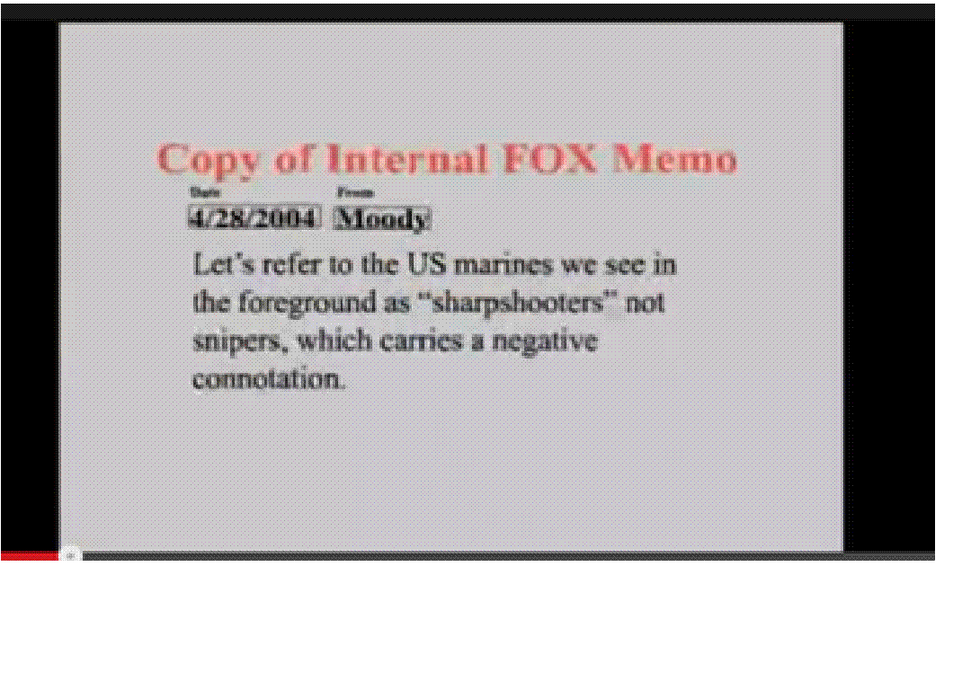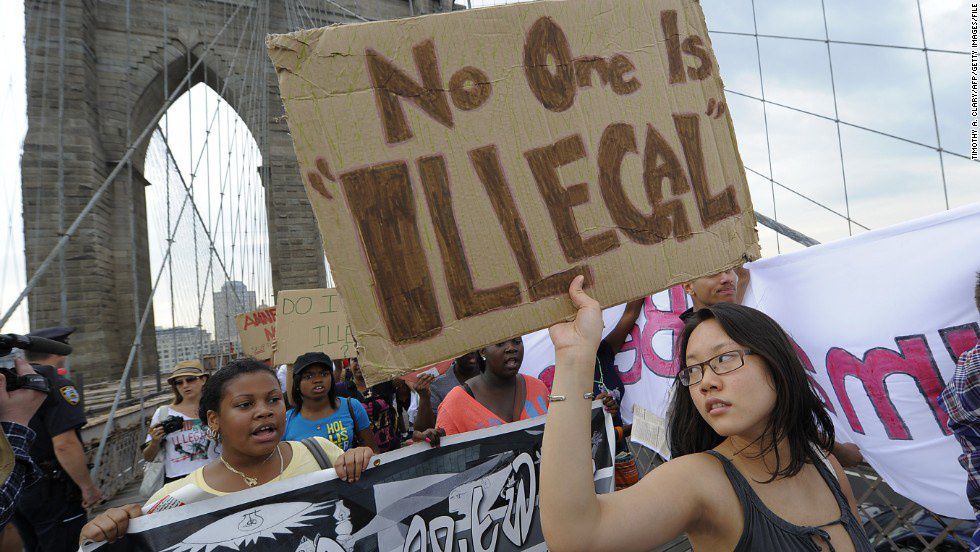When facing daily barrages of articles on everything from your Facebook to your email newsletters, it can become easy and even routine to consume information that may not necessarily be true or even accurate---in turn, this makes passing on inaccurate information much more likely.
Even more insidious, however, is media that represents the news in a biased or distorted manner. The reason for this is that media distortion of news, including inaccurate portrayals of minority groups, political figures, social movements, and other relevant issues, can often be so subtle and strategic that media consumers may never be aware. Bias in the media can be responsible for everything from enhancing already existing stereotypes about different communities to changing election outcomes and government policies.
Technically speaking, there is no such thing as unbiased media. It’s absolutely no secret that most news outlets are slanted toward certain political affiliations; some notable examples include the controversial right-wing program Fox News, and the left-leaning news channel MSNBC. In addition, even the most meticulous and careful reporter can’t produce an article without accidentally adjusting the article to their own perspective---using one word in place of another, referring to a community or a person with a descriptor, downplaying certain aspects of a news story and focusing more on others, are all subtle and often unintentional ways that writers can alter information and influence huge groups of people without them realizing it. Nonetheless, it still remains important to remember in preparation for the upcoming Trump administration that although media bias can be unintentional, it is often disturbingly strategic and deliberate.
The 2004 documentary film “Outfoxed: Rupert Murdoch’s War On Journalism” included several internal memos issued to reporters within Fox News giving detailed instructions on what kind of language to use when reporting on certain topics.

A study on the media’s coverage of the presidential primary showed “that all eight of the news outlets studied gave Trump predominantly positive or neutral coverage, from The New York Times, where 63% of stories about Trump were positive or neutral, to USA Today, which led the way with 74%...By the same token, Clinton received largely negative coverage across the eight news outlets during 2015.”
"Whereas media coverage helped build up Trump, it helped tear down Clinton,” says Harvard professor Thomas E. Patterson on MediaMatters. “Trump’s positive coverage was the equivalent of millions of dollars in ad-buys in his favor, whereas Clinton’s negative coverage can be equated to millions of dollars in attack ads, with her on the receiving end."
Describing Steve Bannon’s followers as “alt-right” rather than white supremacists and describing Black Lives Matter demonstrations as “anti-police” rather than anti-racism are just a couple recent examples of ways in which many media outlets have carefully selected words to convey connotations that do not accurately reflect facts.
1. Alt-right
With Steve Bannon’s recent appointment to the White House as Chief Strategist, there has been an influx in articles about both Bannon and the growing neo-nationalist movement that follow him and his opinion website, Breitbart News. The word popularly used in the media to describe him and this movement has been “alt-right”, a term coined due to the group’s rejection of mainstream conservatism, large social media presence, and embrace of far-right ideologies such as white supremacism, Islamophobia, anti-semitism, anti-feminism, homophobia, and nativism. Though the “alt-right” is a broad and loose group that has been associated with a multitude of right-wing ideologies, the fundamental belief system that is central to the movement is white nationalism. The Southern Poverty Law Center defines “alternative right” as “a set of far-right ideologies, groups and individuals whose core belief is that ‘white identity’ is under attack by multicultural forces using ‘political correctness’ and ‘social justice’ to undermine white people and ‘their’ civilization.”
The term “alt-right” as the name of this broad movement was originally coined by Richard Spencer, head of a white nationalist think tank called the National Policy Institute. It makes sense why Spencer branded his movement this way—”alt-right” is a term that is modern enough (and vague enough) to stand in for more historically accurate descriptors such as “neo-nazism”, “neo-nationalism”, and “white supremacism”---all of which are much more precise and objective terms.
However, members of the “alt-right” movement seek to distinguish themselves from those descriptors largely due to the negative connotations that they carry. Writers and journalists who are essentially humoring this request to use a euphemism instead of simply calling them neo-nationalists are not only printing misleading information, but also normalizing a new hate movement. Readers are much more likely to react neutrally to a headline that reads “Alt Right Celebrates After Steve Bannon Appointed to White House”, than one that reads “Neo-Nazis Celebrate After Steve Bannon Appointed to White House”, even though the two terms clearly refer to the same movement and the second term is a more accurate and historically appropriate one.
Using a neo-nationalist movement’s self-given title rather than calling the movement what it is can only be interpreted as an expression of support. It may not be direct or overt, but condoning something is a form of empowerment. Headlines are not supposed to empower hate movements, and sanitizing language that is designed to influence public perception has absolutely no place in journalism.
2. Illegal alien/immigrant
The issue of unauthorized immigration proved to be a hot topic during the 2015 primaries and the 2016 presidential election, leading to increased media discussion on undocumented immigrants---especially undocumented Mexican immigrants. The use of the terms “illegal aliens”, “illegal immigrants”, and even “illegals” has since cropped up more frequently in the media.
These phrases had already somewhat fallen out of favor in the recent years prior to this election due to numerous reasons ranging from offensiveness to inaccuracy. Immigration rights advocates and Latinx media organizations worked for years to urge news outlets to abandon what many consider to be a dehumanizing and outdated descriptor for any human being. This resulted in the Associated Press announcing in 2013 that it will be dropping the term “illegal immigrant” from its style guide, and will no longer be using the word “illegal” to describe an individual or group of people. Only a few years later, the Library of Congress stopped using “illegal aliens” as a bibliographical term after an appeal from the Coalition for Immigration Reform, Equality and Dreamers at Dartmouth University, instead using “noncitizens” and “unauthorized immigrants" instead.
Many opponents of this updated usage have blamed everything from left-wing political organizations to special interest groups for seemingly attempting to use language to gain sympathy for a cause. Others have stated that the change is simply unnecessary as the words still mean the same. However, there are both linguistic and cultural reasons for why this updated terminology is not only less dehumanizing, but much more accurate in both a grammatical and legal sense.
Using the word “illegal” as a descriptor for a person doesn’t make sense in any context and is grammatically incorrect. A person cannot be illegal; however, the act of residing in the United States without the proper documentation or going through proper immigration procedures is an illegal act. And yet, we wouldn’t call a jaywalker or a robber “illegal” even though both jaywalking and robbery are illegal acts. It would clearly be incorrect to describe the person committing the crime as “illegal” rather than the crime itself.
And that’s precisely why terms such as “illegal alien” or “illegal immigrant” have such negative and dehumanizing connotations.
“Using the word in this way is grammatically incorrect and crosses the line by criminalizing the person, not the action they are purported to have committed,” says the National Association of Hispanic Journalists. “NAHJ calls on the media to never use 'illegals' in headlines... [and] to avoid 'Illegal alien.'”
In addition, shortening these phrases to simply “illegals” is a common trend among much of reactionary media, and is commonplace on Fox News segments such as The O’Reilly Factor and Lou Dobbs Tonight. Linguistically speaking, referring to human beings with only their descriptor (“illegals”, “blacks, “gays”, etc) has historically been an effective way of marginalizing communities by reducing them to a single characteristic or action. This is a tactic that is specifically used to dehumanize marginalized and underprivileged communities, and should never be considered a neutral way to refer to a person.
3. Thug
Though the use of the word “thug” in the media predates the formation of Black Lives Matter, the death of Michael Brown, or the Baltimore rallies, huge spikes in the usage of this word corresponds to all of these events. Rising awareness of the issue of police brutality affecting black communities has put the topic of racism in the media’s limelight, and naturally, racially charged language in the papers and on the news follows suit.
This term may indeed be one of the least neutral words on this list, having been called "the new N-word" by multiple media outlets. President Obama came under fire in 2015 for using it to describe the Baltimore protesters, and isn’t even the only major politician to direct that word toward black protestors and even black victims of police violence.
The word originated from British English used to describe the Thuggees, a sect in India associated with the worship of Kali. The Thuggees were assassins and were characterized by the British as violent criminals.
“Arguably, even this initial usage had racist origins, as contemporary scholarship has questioned whether the Thuggees were truly as murderous as as they were made out to be, or if they were simply a convenient excuse for the British rulers of India to enact repressive policies,” according to ReverbPress. For many years, the word took on a generic meaning and existed as a neutral synonym for “criminal” or “ruffian”.
In the 1990s, the black hip-hop community claimed the word and used it as a self-uplifting label. The genre of hip-hop is characterized by subject matter related to much of the black community’s struggles throughout history, ranging from police brutality to organized crime to economic hardships. The reappropriation of what was originally a derogatory word into a positive one was intended to be an empowering act. Tupac Shakur’s famous “Thug Life” tattoo is a notable example of the positive and powerful connotations this word held in the black community and still holds for many today.
The issue lies in the way this word has been used pejoratively by the largely white mainstream media to describe almost exclusively African Americans. The fact that the term is rarely, if ever, applied to white criminals and individuals in the media reveals sinister racial connotations to the word---in fact, the term has been described by multiple journalists as a stand-in for racial slurs.
“If you go by the way the word is used and if the iQ Media statistics and correlations are accurate, ‘thug’ is increasingly only applied to younger black men—often from a lower socioeconomic status—and its use has grown at an alarming rate,” according to TakePart. Though it had already been established as a racially charged and derogatory term much earlier, its use in the media only began gaining prevalence in 2010 and has spiked every time there has been a high-profile shooting of an unarmed black man. In addition, the word is often used to describe black protestors and activists, such as during the Ferguson and Baltimore protests.
These correlations make it very clear---the word “thug” has inextricable racial connotations that have developed from intentionally inconsistent use targeting African Americans. It no longer has any place in headlines, sound bites, or any kind of media. This should go for any word that is so derogatory to a marginalized group of people that it has been described as a "racist code word".
4. Terrorist
Multiple issues abound with the use of the words “terrorist” and “terrorism” in western English-speaking nations. In the United States, the most obvious and almost instantaneous association that the word “terrorist” has is with political violence committed by certain militant Islamic organizations. Before 9/11, the word “terrorism” was still used to describe acts of violence committed in the name of political or ideological goals, but it was rarely used in the context in which it is used today.
“We know what political violence is, we know what murder, bombings and shootings are and we describe them. That’s much more revealing, we believe, than using a word like terrorist which people will see as value-laden,” says Tarik Kafala, head of BBC Arabic. Indeed, the word “terrorist” has taken on many underlying meanings, as Kafala said. Similar to the way repeated use of the word thug in only certain contexts eventually changed the connotations of the word, repeated use of “terrorist” and “terrorism” to describe political violence by militant Islamic organizations has altered their meanings. Though many argue that “terrorism” simply refers to any act of terror committed toward a larger goal, the truth is that the word is unlikely to be used or perceived neutrally.
The word “terrorist” in the United States media is consistently used to target Islamic organizations that have committed political violence and has since been inextricably associated with Islam. This is evident from the way that the media has rarely assigned that word to individuals such as Dylann Roof or organizations such as the Ku Klux Klan even though both are excellent examples of what the media would consider to be radical and violent terrorists with ideological goals. Instead, this term has almost exclusively been applied to Islamic organizations and individuals, and has even been used to describe altercations between ISIS and U.S forces that do not meet the definition of terrorism at all.
In addition to the Islamophobic connotations of the word, “terrorist” is simply not a neutral enough word for journalism. First of all, it is widely accepted in journalism that labels are to be avoided. Not only that, but the word “terrorism” has inherently negative connotations simply from the structure of the word---calling an event or individual “terroristic” can never be neutral because the word “terror” is not, and never will be, neutral.
“The word ‘terrorist’ itself can be a barrier rather than an aid to understanding. We should try to avoid the term, without attribution. We should let other people characterise while we report the facts as we know them,” says BBC’s editorial guidelines.
The best way to report on “terrorism” is to simply describe what happened---whether it was a shooting, an assault, or a bombing---rather than using arbitrary and biased labels that readers will interpret as objective fact.























